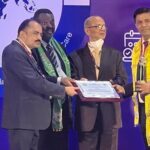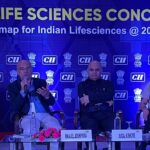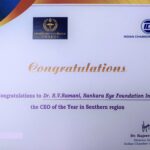Nippon foundation aims India to be a leprosy free nation by 2030. The Nippon Foundation has launched the Global Appeal 2019 for action to end stigma and discrimination against Leprosy patients. India targets to be a leprosy free nation by 2030 and Mr. Yohei Sasakawa WHO Goodwill ambassador pledges to support the vision of Prime Minister Modi.
Mumbai : Continuing its practice of bringing together different stakeholders to speak up against the baseless stigma and discrimination that is faced by persons affected by Leprosy, The Nippon Foundation in collaboration with Sasakawa-India Leprosy Foundation (S-ILF) had organised their annual event Global Appeal 2019 recently. The appeal was read in the presence of the Hon’ble Minister of Law and Technology, Mr Ravi Shankar Prasad and Mr. John Denton, Secretary General, International Chamber of Commerce. It aims at bringing international attention to the stigma and unjust treatment that still affects those affected by this fully curable disease.
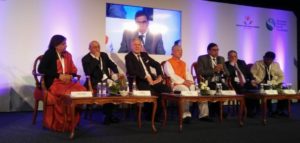

At a ‘Dialogue on Leprosy’, held as part of the Global Appeal 2019, discussion was focussed on Hon’ble Justice Misra’s historic verdict on Leprosy and the way forward. The event saw presence of important stakeholder groups including Persons affected by Leprosy, Representatives from WHO, Representatives from Ministry of Health & Family Welfare, Representatives from Ministry of Social Justice, TNF Members, NGOs and CII Members. The participation and coming together of different stakeholders to work together to further the recent commendable efforts made by the Ministries of Health, Social Justice and Law, was an important outcome of the Dialogue and will lead to significant changes in the social perception of leprosy and those affected by it.
In recent months, other than the Supreme Court judgment, the Ministry of Social Justice has taken concrete steps to ensure that the difficulties faced by leprosy affected both finger print and retina identification for Aadhar cards are overcome. The Ministry of Health has been making laudable efforts at early detection so that it can achieve the target of zero Grade II disabilities among new patients. The law Ministry too has taken cognizance of the discriminatory clauses in many laws and in the last session of the Lok Sabha, a bill was passed amending the Marriage Act. Now leprosy can no longer be accepted as a ground for divorce.
Calling for a Global Appeal and the need for a country wide program of awareness building, Mr. Yohei Sasakawa says “We are indeed proud of our annual initiative of Global Appeal, which has not only been able to make a difference to the lives of people affected by leprosy but also attracted the attention of respectable organisations such as the International Chamber of Commerce. I hope that all stakeholders should support us to win the war against leprosy. This will require a call to action to raise awareness in society by providing correct information about leprosy, including that it is a curable disease with free treatment available and that discrimination is unjustifiable.”
Mr Tarun Das, Chairman – Sasakawa India Leprosy Foundation, says: “It is time that the world wakes up to realise the need for coming together to fight the stigma against the Leprosy. Up till now, leprosy has not attracted the attention of the influential corporate world and now it is very encouraging to see critical stakeholders coming together and we are optimistic to work towards the Vision of Leprosy Free India by 2030”
Dr. Vineeta Shanker, Executive Director of Sasakawa-India Leprosy Foundation says: “Social stigma and failure to detect cases early are hurdles in eradicating leprosy. There are known practical problems in detection, too. Hence, increased resource allocation towards leprosy awareness and control is imperative. In today’s age, it is a known fact that leprosy, if timely detected, is treatable and a person becomes non-infective within 24 hours of starting treatment. Actions and initiatives such as the recent Divorce Bill passed in Lok Sabha and this summit are part of the ongoing efforts to make the world a better place for such people. These steps are sure to contribute to the improvement of the overall social environment and the negative perception around leprosy.”
India has the highest number of annual new cases in the world, followed by Brazil and Indonesia. As per WHO report, India had accounted for 60% of the global total of new cases (2017): AS PER Global Leprosy Update 2017.
ABOUT MR YOHEI SASAKAWA:
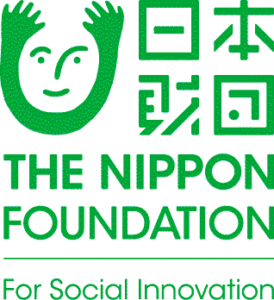

Sasakawa-India Leprosy Foundation (S-ILF) was instituted in November 2006, with inspiration from Mr. Yohei Sasakawa. Sasakawa-India Leprosy Foundation (S-ILF) came into being with his idea of fighting leprosy from both the ends- medical cure as well as fighting the social stigma associated with it.S-ILF is about to complete 12 years of its existence. With Mr. Tarun Das, as its Chairman, the Foundation aims to make a difference in the lives of persons affected by leprosy and their families.





